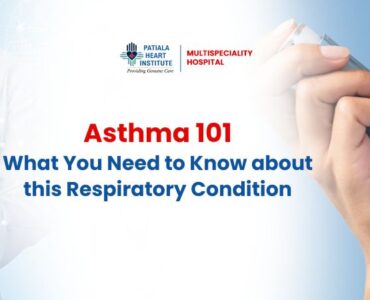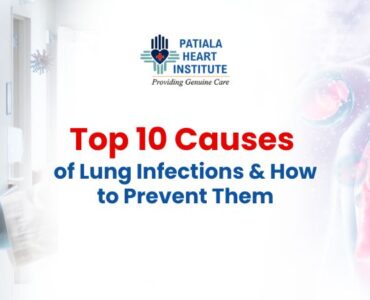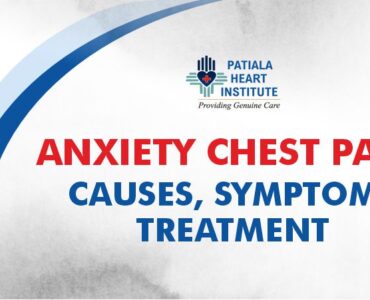Pneumonia is a respiratory infection that inflames the lungs’ tiny air sacs (alveoli). People with a weakened immune system, like older adults, often experience extreme vulnerability to pneumonia.
Older adults aged 65 and above are at a notably higher risk of pneumonia compared to younger age groups. The impact of pneumonia on this age group is substantial and poses a significantly higher risk of developing complications.
Understanding Pneumonia in Aging Adults
Aging adults are more susceptible to pneumonia due to changes in the immune system and other health factors. The immune system’s ability to fight off infections weakens with age, making it harder for the body to fight against pneumonia-causing pathogens.
Additionally, older adults are more likely to have chronic health conditions such as chronic obstructive pulmonary disorder (COPD) or cardiovascular disease, which can increase the risk of pneumonia in elderly.
Symptoms of Pneumonia in Older Adults
The symptoms of pneumonia in aging adults can differ from those in patients from other age groups. The common pneumonia symptoms in elderly are:
- Feeling weak or unsteady
- Lower body temperature than normal
- Shortness of breath
- Cough
- Chest pain while breathing or coughing
- Lack of appetite
- Confusion or changes in mental awareness
- Urinary incontinence
- Changes in the ability to perform daily activities
- Worsening of existing health conditions
Common Causes and Risk Factors
Pneumonia, a respiratory infection with potentially serious consequences, is often triggered by a variety of pathogens. The common causes and risk factors of pneumonia in elderly are:
Infectious Agents
- Bacteria: The majority of bacterial pneumonia cases are caused by Streptococcus pneumoniae, Haemophilus influenzae, and Staphylococcus aureus.
- Viruses: Influenza viruses, respiratory syncytial virus (RSV), and adenoviruses are common viral culprits of pneumonia.
- Fungi: In some cases, fungal infections, particularly among individuals with compromised immune systems, can lead to pneumonia.
Weakened Immune System
Conditions such as HIV/AIDS, cancer, diabetes, and autoimmune disorders can compromise the immune system, increasing the risk of pneumonia. Additionally, the immune system weakens with age, making aging adults more susceptible to infections, including pneumonia.
Underlying Health Conditions
- Chronic Respiratory Diseases: Individuals with chronic obstructive pulmonary disease (COPD), asthma, or bronchiectasis are at a higher risk of developing pneumonia.
- Cardiovascular Diseases: Heart conditions like congestive heart failure can make individuals more vulnerable to respiratory infections.
Environmental Factors
- Exposure to Smoke and Air Pollution: Inhaling pollutants, including cigarette smoke and environmental pollutants, can irritate the lungs and elevate the risk of pneumonia.
- Occupational Exposures: Certain occupations, such as those involving frequent exposure to dust, chemicals, or animal droppings, may increase the likelihood of pneumonia.
Hospital or Healthcare-Associated Pneumonia
- Hospitalization: Individuals admitted to hospitals, particularly those on ventilators, may be at risk of developing pneumonia due to the presence of healthcare-associated pathogens.
- Medical Procedures: Invasive procedures, such as intubation or surgeries, can increase the risk of pneumonia.
Impact of Pneumonia on Aging Population
Pneumonia substantially affects the aging population, presenting unique challenges and risks. As individuals age, their immune systems weaken, rendering them more susceptible to respiratory infections. Pneumonia can lead to severe complications in older adults, often resulting in hospitalization and, unfortunately, increased mortality rates.
Beyond the physical consequences, the impact extends to a diminished quality of life, with lingering persistent effects on daily activities and overall well-being. Recognizing the gravity of pneumonia in the aging demographic underscores the urgency of preventive measures.
Key Strategies for Preventing Pneumonia
Implementing comprehensive strategies can significantly reduce the risk of respiratory infections, ensuring a healthier and improved quality of life.
Vaccination
Vaccination, particularly the pneumococcal vaccine, plays a pivotal role in preventing pneumonia in aging adults. This vaccine protects against the most common bacteria causing pneumonia. Additionally, getting the influenza vaccine is equally crucial, as the flu can lead to complications like pneumonia in vulnerable populations.
Nutrition and Immune Support
A well-balanced diet rich in essential nutrients is key to maintaining a robust immune system. Aging adults should have an adequate intake of nutrients such as vitamin C, vitamin D, and zinc. These play a crucial role in supporting immune function and reducing susceptibility to respiratory infections.
Regular Exercise
Physical activity contributes to overall health and can enhance lung function. Aging adults should include regular, age-appropriate exercise in their daily regime, such as walking or gentle aerobic activities. Regular exercise not only improves cardiovascular health but also strengthens the respiratory muscles.
Good Hygiene Practices
Simple habits like regular handwashing and practicing respiratory hygiene can prevent the spread of infections. Emphasize the importance of thorough handwashing, especially before meals and after being in public spaces. Additionally, use tissues or elbows when coughing or sneezing to limit the dissemination of respiratory droplets.
Smoking Cessation
Smoking is a major risk factor for pneumonia in aging adults. Quitting smoking can be challenging, but the benefits are immense. Smoking cessation not only reduces the risk of pneumonia but also improves overall lung health and quality of life.
Avoiding Respiratory Irritants
Minimizing exposure to respiratory irritants, such as air pollution and passive smoking, is crucial. Aging adults should be mindful of their environment and take steps to protect themselves from pollutants that can compromise respiratory health.
Oral Hygiene
Dental health is closely linked to respiratory health. Poor oral hygiene can lead to bacterial infections that may travel to the lungs and cause pneumonia. Regular dental check-ups, daily brushing, flossing, and proper denture care are essential components of pneumonia prevention for aging adults.
Staying Hydrated
Staying adequately hydrated is essential for overall health and immune function. Proper hydration helps maintain mucous membranes in the respiratory tract, reducing the risk of infections. Aging adults should aim to consume an adequate amount of fluids, including water, herbal teas, green smoothies, infused water, and juices, to support their immune and respiratory systems.
Improving Indoor Air Quality
Adequate ventilation and maintaining good indoor air quality are essential in preventing respiratory infections. Proper ventilation reduces the concentration of airborne pathogens, decreasing the risk of pneumonia. Aging adults should ensure their living spaces are well-ventilated and free from indoor pollutants.
Recognizing Early Symptoms
Understanding the early symptoms of pneumonia is vital for prompt intervention. Common signs in aging adults include persistent cough, difficulty breathing, chest pain, and confusion. Recognizing these symptoms early allows for timely medical attention and improves the chances of a positive outcome.
Prompt Treatment of Respiratory Infections
if you experience symptoms of respiratory infections, such as cough, fever, or difficulty breathing, seek prompt medical attention. Consulting a healthcare professional promptly can prevent complications and improve recovery outcomes.
Conclusion
Pneumonia is a respiratory infection that is often more severe in aging adults. It is a significant cause of hospitalization and mortality in the aging population. By incorporating the tips mentioned above into their lives, elderly people can significantly reduce the risk of pneumonia and enhance their overall quality of life.
Seeking expert care for pneumonia and other respiratory problems? Choose Patiala Heart Institute for comprehensive and compassionate treatment. Our dedicated team of the best pulmonologists in Patiala is committed to providing personalized solutions to ensure your swift recovery. Book an appointment with one of our chest specialists in Patiala today.







